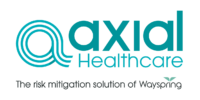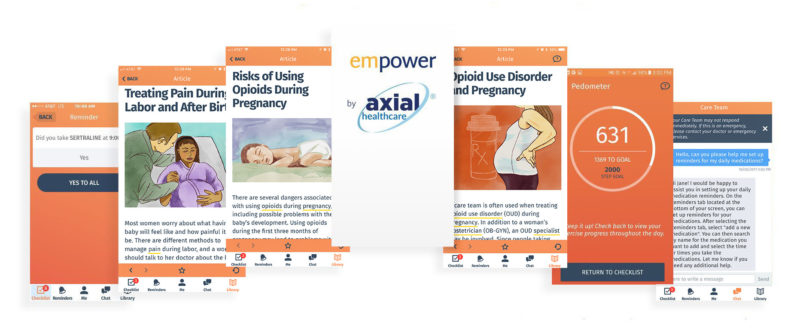Doctors in Alabama will become the first in the nation to get new tools to prevent prenatal exposure to prescription drugs through a program launched by Blue Cross and Blue Shield.
AxialHealthcare of Tennessee partnered with the insurer to identify women at risk of opioid abuse before they become pregnant and deliver babies that may require medical treatment for dependence.
The rate of babies born with neonatal abstinence syndrome – which occurs when they are exposed to drugs before birth – has skyrocketed in the last decade with increases in opioid use. Between 2004 and 2014, the number of babies diagnosed with the condition increased 433 percent.
Alabama had the highest rate of per capita opioid prescriptions in the country in 2015, according to the U.S. Centers for Disease Control and Prevention. The rate of prescriptions has declined in recent years, but still leads the country. Dr. Stephen Patrick, a researcher at Children’s Hospital at Vanderbilt, found that rates of opioid prescriptions drove an incidence of neonatal abstinence syndrome that’s three times higher in the South than the national average.
As babies withdraw from drugs, they may cry inconsolably, shake and struggle with feeding. About half of babies exposed to drugs in utero will suffer withdrawal. Symptoms subside within days or weeks but may require treatment with methadone or morphine in neonatal intensive care units.
AxialHealthcare will use data from Blue Cross Blue Shield of Alabama to identify women between the ages of 15 and 49 using large doses of prescription opioids or potentially dangerous drug combinations. Once those patients have been identified, the company offers information to doctors about reducing the use of prescription drugs and referring patients to treatment. The primary goal is to wean as many women as possible off opioids before they become pregnant.
“We know that supporting members with substance abuse issues is critical,” said Dr. Anne Schmidt, medical director of Blue Cross and Blue Shield of Alabama. “So the earlier we can intervene with mom, the better the outcomes will be for her and her baby.”
The system will also identify women with opioid prescriptions as soon as they visit an obstetrician and can help steer them toward providers that specialize in substance use disorder during pregnancy. Drug withdrawal can cause miscarriage or pre-term delivery, so most patients use medication such as suboxone or methadone before birth.
The system will catch women with legal prescriptions for opioids from doctors. Axial will have access to that data for patients covered by Blue Cross Blue Shield of Alabama. Doctors will also receive coaching on the best way to discuss substance use among women who are pregnant or may become pregnant. Women enrolled in the program will also receive assistance through a mobile app that can connect them to information and chat-based support.
Data is just the latest tool deployed the address the problem in Alabama. Law enforcement agencies have pursued criminal charges hundreds of times against women who used substances during pregnancy – a strategy experts worry could steer moms-to-be away from medical care. Lawmakers amended the law to prevent its use against women using legally prescribed drugs in 2016, but officers often arrest women using illicit substances.
John Donahue, CEO of axialHealthcare, said the program aims to be as nonjudgmental as possible. The company began working with Blue Cross and Blue Shield of Alabama last fall to monitor opioid prescribing patterns among patients and doctors. Donahue said the focus on pregnant women can help protect the most vulnerable patients in the healthcare system.
“Job one is removing any possibility of stigmatizing,” Donahue said. “They are victims right? Victims of a healthcare system that has failed them in treating pain.”
AxialHealthcare of Tennessee partnered with the insurer to identify women at risk of opioid abuse before they become pregnant and deliver babies that may require medical treatment for dependence.
The rate of babies born with neonatal abstinence syndrome – which occurs when they are exposed to drugs before birth – has skyrocketed in the last decade with increases in opioid use. Between 2004 and 2014, the number of babies diagnosed with the condition increased 433 percent.
Alabama had the highest rate of per capita opioid prescriptions in the country in 2015, according to the U.S. Centers for Disease Control and Prevention. The rate of prescriptions has declined in recent years, but still leads the country. Dr. Stephen Patrick, a researcher at Children’s Hospital at Vanderbilt, found that rates of opioid prescriptions drove an incidence of neonatal abstinence syndrome that’s three times higher in the South than the national average.
As babies withdraw from drugs, they may cry inconsolably, shake and struggle with feeding. About half of babies exposed to drugs in utero will suffer withdrawal. Symptoms subside within days or weeks but may require treatment with methadone or morphine in neonatal intensive care units.
AxialHealthcare will use data from Blue Cross Blue Shield of Alabama to identify women between the ages of 15 and 49 using large doses of prescription opioids or potentially dangerous drug combinations. Once those patients have been identified, the company offers information to doctors about reducing the use of prescription drugs and referring patients to treatment. The primary goal is to wean as many women as possible off opioids before they become pregnant.
“We know that supporting members with substance abuse issues is critical,” said Dr. Anne Schmidt, medical director of Blue Cross and Blue Shield of Alabama. “So the earlier we can intervene with mom, the better the outcomes will be for her and her baby.”
The system will also identify women with opioid prescriptions as soon as they visit an obstetrician and can help steer them toward providers that specialize in substance use disorder during pregnancy. Drug withdrawal can cause miscarriage or pre-term delivery, so most patients use medication such as suboxone or methadone before birth.
The system will catch women with legal prescriptions for opioids from doctors. Axial will have access to that data for patients covered by Blue Cross Blue Shield of Alabama. Doctors will also receive coaching on the best way to discuss substance use among women who are pregnant or may become pregnant. Women enrolled in the program will also receive assistance through a mobile app that can connect them to information and chat-based support.
Data is just the latest tool deployed the address the problem in Alabama. Law enforcement agencies have pursued criminal charges hundreds of times against women who used substances during pregnancy – a strategy experts worry could steer moms-to-be away from medical care. Lawmakers amended the law to prevent its use against women using legally prescribed drugs in 2016, but officers often arrest women using illicit substances.
John Donahue, CEO of axialHealthcare, said the program aims to be as nonjudgmental as possible. The company began working with Blue Cross and Blue Shield of Alabama last fall to monitor opioid prescribing patterns among patients and doctors. Donahue said the focus on pregnant women can help protect the most vulnerable patients in the healthcare system.
“Job one is removing any possibility of stigmatizing,” Donahue said. “They are victims right? Victims of a healthcare system that has failed them in treating pain.”

